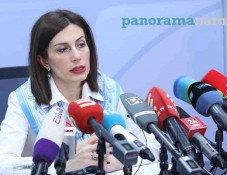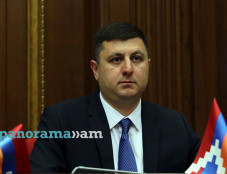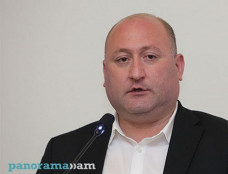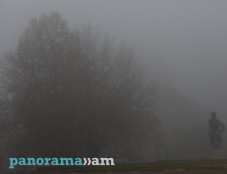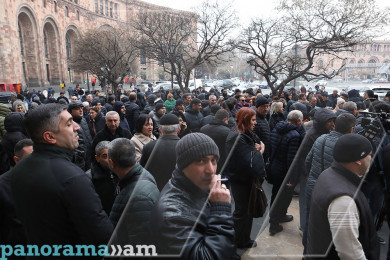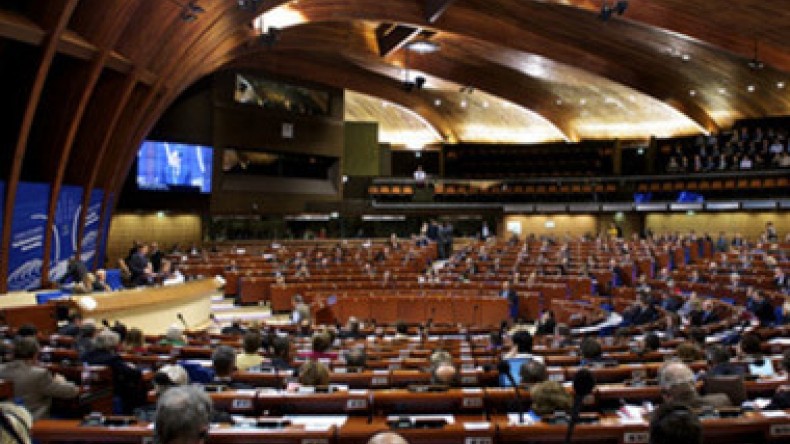
ESI: Debates at PACE on Straesser’s report showed that Azerbaijan manipulates that organization
The European Stability Initiative (ESI) non-profit research and policy organization states in its report titled “Azerbaijan debacle: The PACE debate on 23 January 2013” that the presented debates prove how Baku manipulates PACE.
In particular, the organization underlines that Representatives of Azerbaijani president Ilham Aliyev's regime had long waged a campaign against Christoph Straesser, who was appointed as rapporteur in March 2009. “Most egregiously, Azerbaijan refused to issue Straesser a visa to visit the country on a fact-finding mission, although he applied for it three times. Straesser was openly and repeatedly accused of being part of an anti-Azerbaijani lobbying effort,” ESI writes.
The document says that, On 23 January 2013 a record 224 members of the parliamentary assembly of the Council of Europe (PACE) participated in a debate on Azerbaijan. There have never been more members voting on any resolution in the history of PACE. “The vote was also historic because of its outcome: PACE rapporteur Christoph Straesser's resolution on political prisoners in Azerbaijan was defeated – 125 votes against 79 votes, with 20 abstentions – sending a very strong signal of support to the authoritarian regime in Baku,” the authors of the report say.
According to the document, the vote on 23 January was remarkable in terms of who voted with Azerbaijan and who voted with Straesser. All 18 Russian members were present and sided with Azerbaijan. So did 10 Turks, 9 Spaniards, 9 Italians and a majority of members from the United Kingdom (7), Ukraine (7) and France (7). On the other hand, 11 German members from all political families supported Straesser's resolution. They were joined by all 6 Swedes, and most Swiss, Finns, Norwegians and all Baltic members and Armenia.
“In total, 54 people spoke in the debate. Straesser was accused by his critics of the following things: He was also accused of not checking the facts, rushing the issues, unfairly focusing on Azerbaijan, implementing double standards. The critics decided that if the report is approved real terrorists can all announce themselves to be political prisoners,” ESI notes.
“Another disturbing twist in this debate was the fact that in addition to the vote on Straesser's resolution, a second, concurrent resolution on Azerbaijan had also been put on the table which was presented by its authors as a clear alternative – in contradiction no less – to the resolution drafted by Strasser,” the report says.
“I ask members to support the first report, but I will vote against Mr Straesser's report, for obvious reasons: it contradicts our report and encroaches on the authority of the Monitoring Committee,” Pedro Agramunt Spanish, co-rapporteur of the monitoring committee told PACE.
The organization calls this debate a striking one that is likely to be remembered for many years, and certain to stand as a reminder of just how successfully Azerbaijan has been able to capture and manipulate PACE.
According to Strasser a resolution was adopted in 2005 about Azerbaijan which stated that the issue of political prisoners has not been finally resolved.
“We in the Parliamentary Assembly must take our own commitments seriously. We have committed ourselves to follow up the process, so we have a responsibility to do so. Only a few months ago, we agreed on a definition of 'political prisoner'. We do not want to pillory any country in particular, and that definition applies to all 47 member states of the Council of Europe. What is the current situation? Unfortunately, on the basis of information gained via co-operation with a number of Azerbaijani non-governmental organisations, it is clear that this issue has not been addressed since our last report,” Strasser said.
“Only a few weeks ago, there was a presidential amnesty for more than 40 detainees, 14 of whom appeared on the list I submitted, but others who are clearly political prisoners are still in prison in Azerbaijan, so we must get to grips with this issue yet again,” he stated.
German MP Viola von Cramon-Taubadel noted that the problem of political imprisonment in Azerbaijan has still not been solved, even following the amnesty of 26 December. According to her, it is a cat-and-mouse game for Azerbaijani Authorities, in which people are arrested, released and then re-arrested shortly afterwards. “Everybody clearly knows that next time it could be them, which is a tactic of intimidation,” she said.
Another German MP Marina Schuster stressed that there is a lack of freedom of the media, freedom of expression and freedom of assembly and independence of the judiciary in Azerbaijan. Besides that she noted that there are no free and fair elections, and journalists and opposition politicians are intimidated at every turn. Speaking on Straesser’s report the MP noted that unfortunately, Mr. Straesser could not even visit Azerbaijan. “The Assembly should not tolerate our rapporteurs being denied access to a country, as it is essential to be able to see the situation on the ground,” Schuster noted.
Newsfeed
Videos








